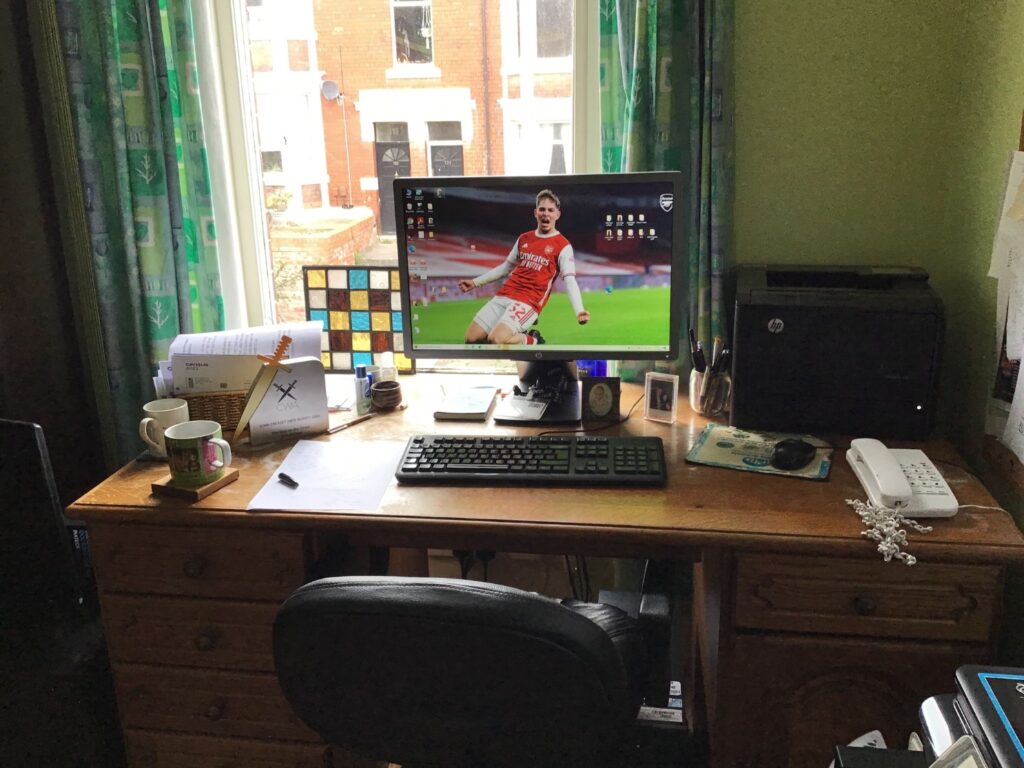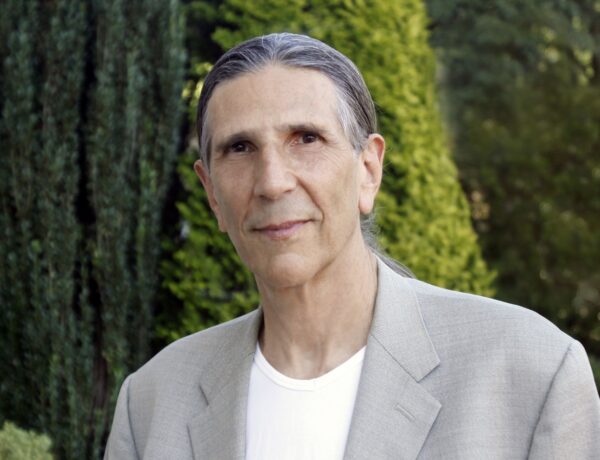Trevor Wood is a successful playwright who has also worked as a journalist and spin-doctor for the City Council. Prior to that he served in the Royal Navy for 16 years joining, presciently, as a writer.
He holds an MA in Creative Writing (Crime Fiction) from UEA. Trevor’s first novel, The Man on the Street, which is set in his home city, was published by Quercus in March 2020. The sequel, One Way Street, and the third and final book of the Jimmy Mullen trilogy, Dead End Street, are both out now. He is represented by the estimable Oli Munson at AM Heath.
Each week, we publish a new daily writing routine from a famous author. Subscribe to our newsletter so you don’t miss out!
Hi Trevor, great to have you on Famous Writing Routines. We’re really excited to talk to you about your writing routine and process. For those who may not know, can you please tell us a little bit about yourself?
I’m a novelist and playwright who has also worked as a journalist and spin-doctor. Prior to all that I served in the Royal Navy for 16 years.
My first novel The Man on the Street, which is set in my home city, Newcastle, and features a homeless protagonist, Jimmy Mullen, was published in March 2020. It won the Crime Writers’ Association’s John Creasey New Blood Dagger for best debut and the Crimefest Specsavers Debut Novel of the Year. It was also shortlisted for the Theakston’s Old Peculier Crime Novel of the Year and has been optioned for TV by World Productions, the makers of Line of Duty. The sequel, the highly-acclaimed One Way Street was released the following year and the final book in the trilogy, Dead End Street was published in early 2020.
I’m one of the founder members of the Northern Crime Syndicate and am a volunteer at the People’s Kitchen in Newcastle, a charity that provides hot meals for more than a hundred people every day. I also have an MA in Creative Writing (Crime Fiction) from UEA.
After spending all these years serving in the Royal Navy, then working as a playwright, then in journalism and PR, what made you decide to try your hand in writing fiction?
I co-wrote around a dozen plays with my friend Ed Waugh which were all professionally produced, including the international hit Dirty Dusting. We were pretty successful by any measure but it was becoming increasingly difficult to find a home for the plays. Most theatres in the UK are run, or at the very least, heavily subsidised, by the city councils and they were becoming under increasingly financial pressure it was becoming more difficult for them to spend money on the arts.
Touring plays are much cheaper to put on than starting a new play from scratch with all the up-front costs involved so Ed and I ended up having to produce our own plays, not only taking the financial risks that this entails but actively organising everything: booking venues, negotiating the deals, arranging transport and accommodation, recruiting a director and other technical staff, auditioning actors etc etc.
Everything, in fact, except writing, I just wanted to write! After our last play, Amazing Grace, was self-produced I decided that enough was enough and turned to the area that had always interested me since I first started reading – crime fiction. Luckily it paid off.
Can you take us behind the creative process for your latest novel, Dead End Street?
I like to think that the strength of the Jimmy Mullen series is that they’re firmly grounded in reality and given that my main protagonist is homeless I didn’t think it was realistic for him to be part of a long-running series where he’s continually involved in solving crimes that the police have either missed or don’t have the resources to investigate so I was determined to limit the series to three books.
In Dead End Street there is a group of right wing vigilantes trying to clear the homeless from the city’s streets, often using violent methods. When one of Jimmy’s friends is found unconscious in an alley with a dead vigilante alongside side him and the murder weapon in his hand, Jimmy is forced to try and clear his friend’s name.
The idea was based on real incidents in the UK as most of the stories in the books are. As with the first two books in the series I hope that the book humanises a community that is too often demonised. It’s often said that everyone is only two wage slips away from poverty and the homeless characters in my books come from all kinds of backgrounds and have ended up living on the streets for a wide variety of reasons, not all of which are self-inflicted.

When you’re in novel mode, what does a typical writing day look like for you?
Ever since I started writing full time more then twenty years ago, initially for the theatre, I have tried to treat it as a normal full-time job rather than a hobby. I like to work from nine to five, Monday to Friday with a break for lunch each day. Without that discipline, it’s too easy to get distracted.
Writers like to prevaricate at the best of times so I avoid things like daytime TV and try to make sure I get something down on paper every day. Clearly sometimes the mojo isn’t there and the quality isn’t what I might hope but I still get something written – as someone wiser than me once said ‘all writing is rewriting’ (Hemingway, I think). It doesn’t matter how good your writing is in a first draft, you can always improve it later.
Do you have a target word count that you like to hit each day?
Sort of, but I’m not too precious about it. I aim to finish a book in nine months, which I’ve pretty much managed comfortably with the last two Jimmy Mullen novels and my forthcoming standalone. By that reckoning I need to write at least 10k a month, 2.5k a week.
I’d rather have 500 great words a day than 1000 ordinary ones and I edit heavily as I go so if I get the former then I’m happy. As I edit as I go I don’t normally have to do too much by the time I get to the end of the first draft before I can start showing it to a few trusted readers.
If you could give just one piece of advice to a writer trying to get published, what would it be?
Find (or form) a writing group with others in a similar position. Read each other’s work and offer constructive criticism of it. It will improve your writing 1000%. It’s crucial that when you submit your work to an agent or publisher it’s in the best possible shape it can be as you may only get one chance and taking on board the views of others can only help you fulfil that dream. You don’t have to agree with everything that your peers say but it will mean that your writing has been tested properly before you put it out into the world.
What does your writing workspace look like?
It’s a relatively small office place that occasionally doubles up as a spare bedroom – there’s a bed sofa off to one side. It looks out to the street so I can see what the neighbours are up to. The down side is that every delivery man can see me sitting there so I’ve become the go-to guy for collecting other people’s parcels if they’re out! If you look closely on the left of the desk you can see the CWA John Creasey Dagger award for The Man on the Street.

Before you go…
Each week, we spend hours upon hours researching and writing about famous authors and their daily writing routines. It’s a lot of work, but we do it out of our love for books and learning about these authors’ creative process, and we certainly don’t expect anything in return. However, if you’re enjoying these profiles each week, and would like to send something our way, feel free to buy us a coffee!



No Comments